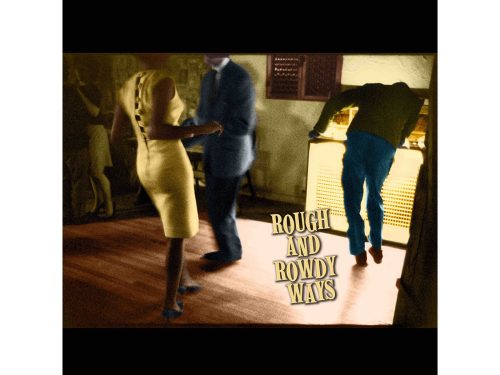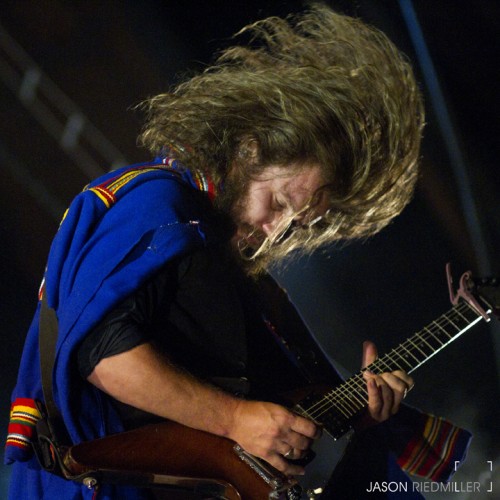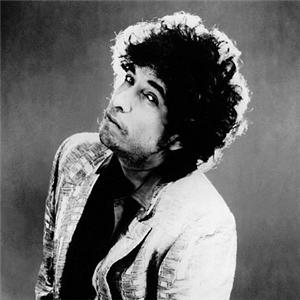“I’ll take the Scarface Pacino and The Godfather Brando/ Mix it up in a tank and get a robot commando,” Bob Dylan sings in “My Own Version of You,” skulking by night around “morgues and monasteries/ Looking for the necessary body parts/ Limbs and livers and brains and hearts” to slap together his ideal mate, Frankenstein-style. Hearing the 79-year-old delight in his own wordplay over haunted-house music is thrilling enough for Dylan fanatics, but the bard is also hinting at his creative process on “Rough and Rowdy Ways,” his first album of original songs since 2012: a dash of blues here, some croony romanticism there; a JFK tribute here and a Mott The Hoople reference there.
Dylan is sublime throughout the 10 tracks, from the slyly autobiographical “I Contain Multitudes” (the title taken from Walt Whitman) to the stunning, 16-minute, end-of-the-’60s-innocence album closer, “Murder Most Foul” (the title taken from “Hamlet” — it’s no secret Dylan is a borrower), and despite the smorgasbord of sounds and themes, it all hangs together cohesively for his best work since 1997’s ruminative classic “Time Out of Mind.”
Dylan’s recent three-album foray into Frank Sinatra standards seems to have had some influence on the pared-down and direct method he uses to get his points across, musically and vocally. The blues, too, is a major part of his palette, as it has been since 2001’s “Love & Theft,” forming the backbone of “False Prophet,” “Goodbye Jimmy Reed” and “Crossing the Rubicon.” The best of that bunch is the ode to the Mississippi bluesman known for the oft-covered “Big Boss Man” (Dylan fans will know the Grateful Dead’s version) — when Dylan sings “Goodbye Jimmy Reed, Jimmy Reed indeed” over boozy horns, his glee is contagious. It’s also another fine entry in Dylan’s collection of eulogy tunes, including “Lenny Bruce,” “Blind Willie McTell” and “Roll on John” (Lennon).
Another side of Dylan — his lighter, romantic one — is here on “I’ve Made Up My Mind to Give Myself to You,” which during his gospel period would be heard as him casting his lot with Jesus. “From East LA, to San Antone, I don’t think I can bear to live my life alone,” he sings to the object of his love, drawing from the same well that gave us “To Make You Feel My Love.”
“Black Rider” is dark, sparse, world-weary and haunting, and whoever or whatever the Rider is, it won’t leave Dylan alone: “I don’t want to fight, at least not today,” Dylan sings. “Go home to your wife, stop visiting mine/ One of these days, I’ll forget to be kind.” “Mother of Muses,” meanwhile, is a hymn not only to the artistic spark, but also military generals who cleared the path for two “Kings”: Elvis Presley and MLK Jr. He also pleas for the mother of muses to unblock his path, to “Put me upright, make me walk straight/ Forge my identity from the inside out.”
“Murder Most Foul,” released in March before we knew Dylan had an album on the way, has gotten the most attention, and at 16 minutes it’s a history lesson, counterculture nostalgia trip and requiem for the ‘60s told through the prism of John F. Kennedy’s assassination with a documentarian’s attention to detail. Throughout its monumental 15 stanzas, Dylan quotes The Who, Tom Jones, The Eagles and The Beatles and calls out Stevie Nicks, Houdini and Jelly Roll Morton. It’s one of the more remarkable songs of Dylan’s career, which is something even his most loyal followers didn’t expect to say in 2020.
To these ears, however, what puts “Rough and Rowdy Ways” over the edge as the best thing Dylan has done since the ‘90s are songs like “My Own Version of You,” “Goodbye Jimmy Reed” and “Key West (Philosopher Pirate),” the penultimate track. “Key West is under the sun, under the radar, under the gun,” he sings over gentle accordion, imagining the Florida town as a refuge for outsiders like “Ginsberg, Corso and Kerouac” (probably not coincidentally, Alan Ginsberg had a song called “Walking at Night in Key West”.)
As Dylan stares down his 80th birthday and his country churns with anger and unease — much like when he came to prominence in the ‘60s — the end might be near, in a few different ways. But the mad scientist and philosopher poet has some hope for the future; in “Key West,” after he deadpans about marrying a hooker when he was 12, he assures, “That’s my story, but not where it ends/ She’s still cute and we’re still friends.”
Rating: 81/81




nice review, finally i read someone talk objectively about dylan work without trying to unlock the mystery and pretend to own (his version of) the truth
Attended his recent Columbus concert, glad I did, enjoyed the new songs live, especially Prophet.